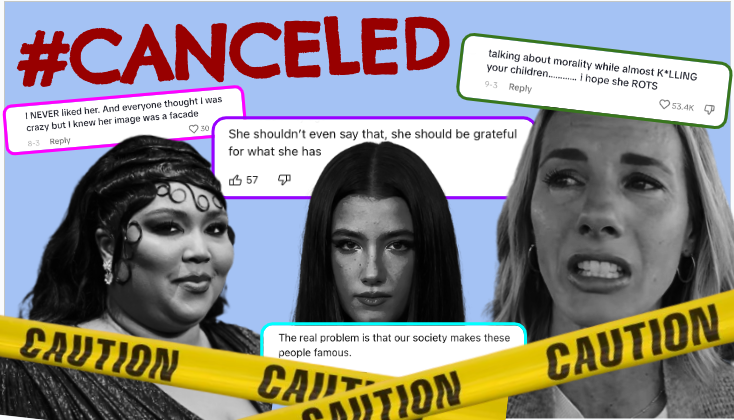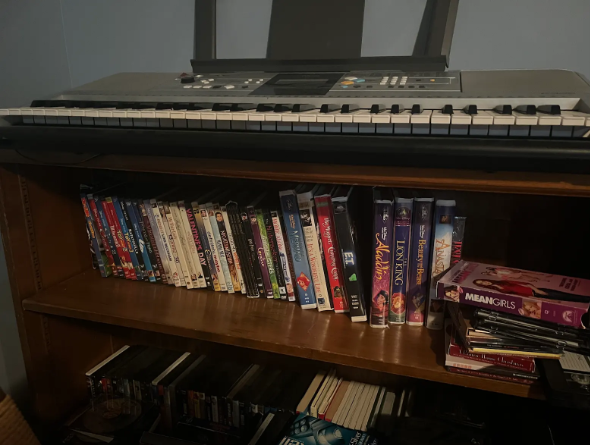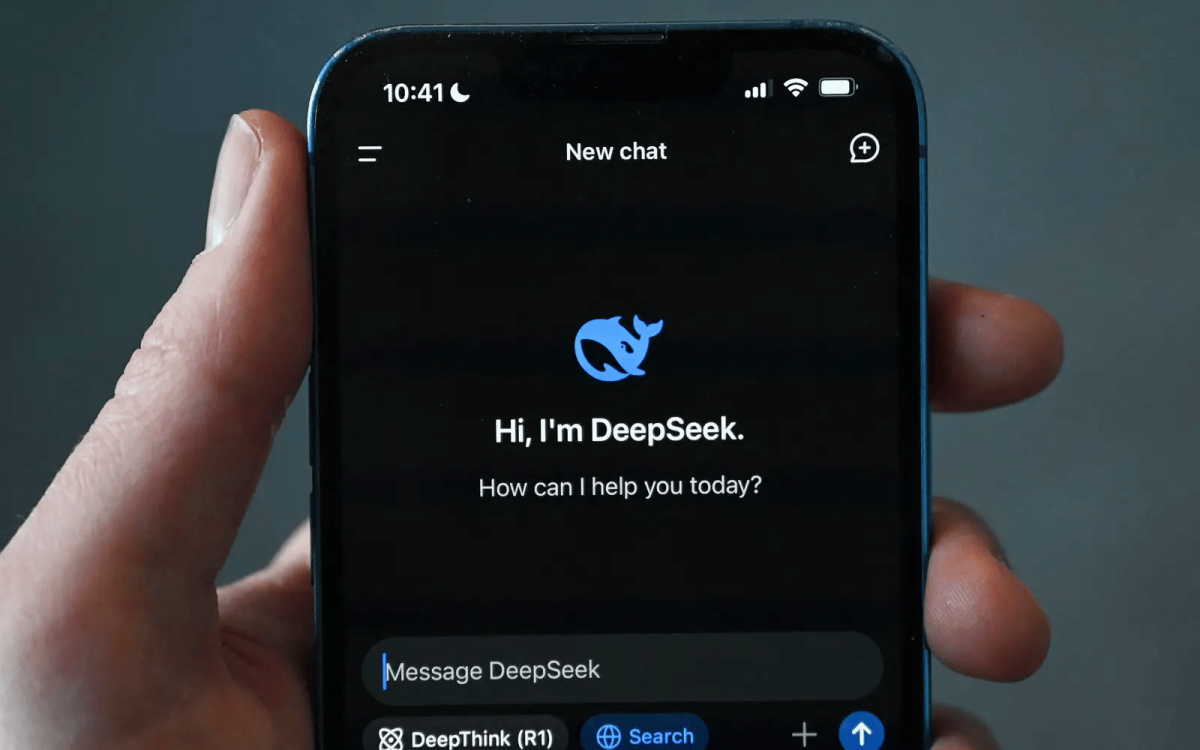In an age where tweets hold more weight than the truth, the power of public opinion has never been stronger, and it is reshaping the way people view and interact with one another.
The phenomenon of ‘cancel culture’ has become more prominent in recent years, helping hold individuals accountable for their words and actions. While it aims to denounce ignorance and address social injustices, one question remains: does cancel culture sacrifice the potential for deeper understanding and meaningful conversations in the process?
According to Merriam-Webster, cancel culture refers to the practice of engaging in mass cancellation as a way of expressing disapproval and exerting social pressure. It has become a common way to call out public figures or celebrities who have done things that are deemed offensive, problematic or toxic as well as harmful behaviors that are not socially acceptable today. In many instances, cancel culture has played a crucial role in bringing issues to light; however, the power of cancel culture lies in its immediate impact and the court of public opinion.
The rise of social media gives users and viewers alike the ability to take on the role of accuser, judge and jury, giving individuals the foothold to be tried, convicted and sentenced within the span of a few viral TikToks.
Recently, in the month of August, famous American rapper and singer Lizzo was put under the spotlight. The pop star, known for promoting body positivity and diversity, has been caught in several lawsuits with her employees, both past and present. These individuals have made accusations of sexual and racial harassment and a hostile work environment.
In an article by ABC News, Asha Daniels, a professional clothing designer who previously worked for Lizzo and BIG GRRRL BIG TOURING, INC (BGBT), has claimed she witnessed dancers being forced to change with little to no privacy in front of men and that some men would allegedly refer to Black women on tour as “dumb,” “useless” and “fat.”
Another article by Billboard Magazine reports that Daniels witnessed Amanda Nomura, Lizzo’s wardrobe manager, making “racist and fatphobic comments,” including mocking Lizzo and her background dancers and “doing an offensive stereotypical impression of a Black woman.”
While the allegations may be a way of letting the truth prevail, the ongoing lawsuit perpetuates the game of blindly pointing a finger at someone and the almost irreversible effects of cancel culture that damages reputations.
Cara Morgan, a junior at Linganore High School (LHS), believes that cancel culture is a part of mob mentality.
“It’s like monkey see, monkey do,” Morgan said. “On instagram, if someone got canceled, my friend would show it to me, and then I would be like, ‘Oh my God, I know that’s stupid’ and agree with them, and then it would just be this ongoing chain of negativity.”
Navigating the fine line of what may get one canceled is a slippery slope that begs the question: Has cancel culture gone too far?
As people on the internet rally together to condemn someone, it can be easy to forget that the individual on the receiving end is a human being with feelings and the potential for personal growth.
In the year 2020, internet sensation Charli D’Amelio was canceled for “being rude” to her family’s personal chef, Aaron May. In the first YouTube video of a series called “Dinner With the D’Amelios,” May presents the family with several dishes, including a paella dish with snails, which sisters Charli and Dixie D’Amelio mocked.
In another moment within the video, Charli D’Amelio is seen complaining about her lack of new followers within a one-year time frame, stating “I wish I had more time because imagine if I hit 100 million a year after hitting one million.”
Makeup influencer James Charles was the guest star for the episode and responded to her statement by asking “was the 95 million not enough for you?”
Tiktok users quickly took matters into their own hands, unfollowing D’Amelio en masse while simultaneously deeming the star “ungrateful” with death threats. Mob mentality quickly turned into bullying with the posting of a single comment.
In response, LHS junior Heather Burdette said, “the truth hurts, but so do words.”
While cancel culture has its cons, it also has its pros. Cancel culture can be used to acknowledge the wrongdoings of others. For example, Ruby Franke, family vlogger and owner of the 8 passengers YouTube channel, has been arrested and charged with six felony counts of aggravated child abuse alongside her business partner Jodi Hildebrandt.
This abuse was uncovered after one of Franke’s children ran from Hildebrandt’s home to a neighbor’s home, knocked on the door and asked for food and water. The neighbor then called 911 and told dispatch the boy was emaciated and had tape around his legs.
People who regularly watched the channel and had suspicions of Ruby’s maltreatment from video to video were proven right when she was put under the microscope. The case brought awareness to the fact that there is always more than what meets the eye. Without cancel culture, this story would not have circulated as quickly as it did and brought the much needed attention to the issue of child neglect.
Linganore drama and dance teacher Angela Smithhisler believes that cancel culture is sometimes used as a means to an end.
“I’m absolutely 100% for weeding out people saying inappropriate things or supporting inappropriate things because, you know, it’s 2023; we shouldn’t be saying racist [and] homophobic … stuff nowadays,” Smithhisler said.
However, Smithhisler does not support cancel culture when it is politically driven, and she is not the only one.
Linganore social studies teacher Michael Weimert says that cancel culture limits the First Amendment.
“I think one of the greatest and hardest things about the United States is that the whole point of being able to say and think and express what you think is that you have to be able to let everybody else do it too,” Weimert said.
Cancel culture causes people to hesitate in voicing their opinions solely based off of the fear that they will be canceled by people who simply do not agree with their viewpoints or beliefs.
Morgan shared her belief that cancel culture can be dangerous.
“If you say the wrong thing to the wrong person at the wrong time, then you’re done and that’s it,” Morgan said.
Though cancel culture proves to be effective at times, many agree that it eradicates the ability for one to learn from one’s mistakes. While someone may not be given many chances, everyone deserves at least a second chance.
James Jensen, a social studies teacher at LHS, is a firm believer in second chances.
“I’m a big fan of forgiving people who ask for forgiveness, and I think that one of the reasons we were put on this Earth is to learn and to improve from past mistakes,” Jensen said.
In conclusion, cancel culture is viewed as a double edged sword. While it can be used to bring awareness to injustice and societal issues, it can also eliminate the opportunity for people to have those conversations in which they are able to acknowledge their faults or ignorance and learn from their mistakes.
The moral here is take everything seen or heard online with a grain of salt, and make sure we educate ourselves before we “cancel” someone.








